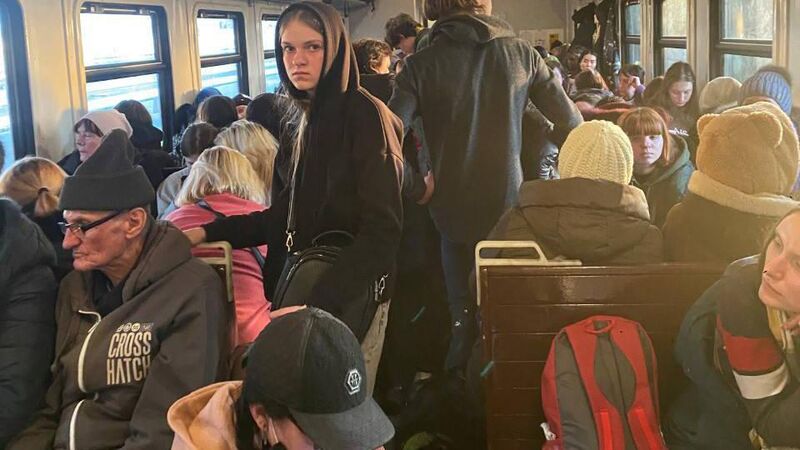'We will live together or die together': As families flee, one of the less lucky ones returns to Lviv

'The train to Poland stopped repeatedly, at one point for four hours. There was no food or water... but nobody complained. Passengers knew they were the lucky ones.' Picture: Hannah McCarthy
Since the start of the Russian invasion, Ukraine’s western city of Lviv has been a transit hub for over 1m people fleeing the tanks, troops, and bombs.
Every day, thousands arrive at the city before travelling on to Poland.










